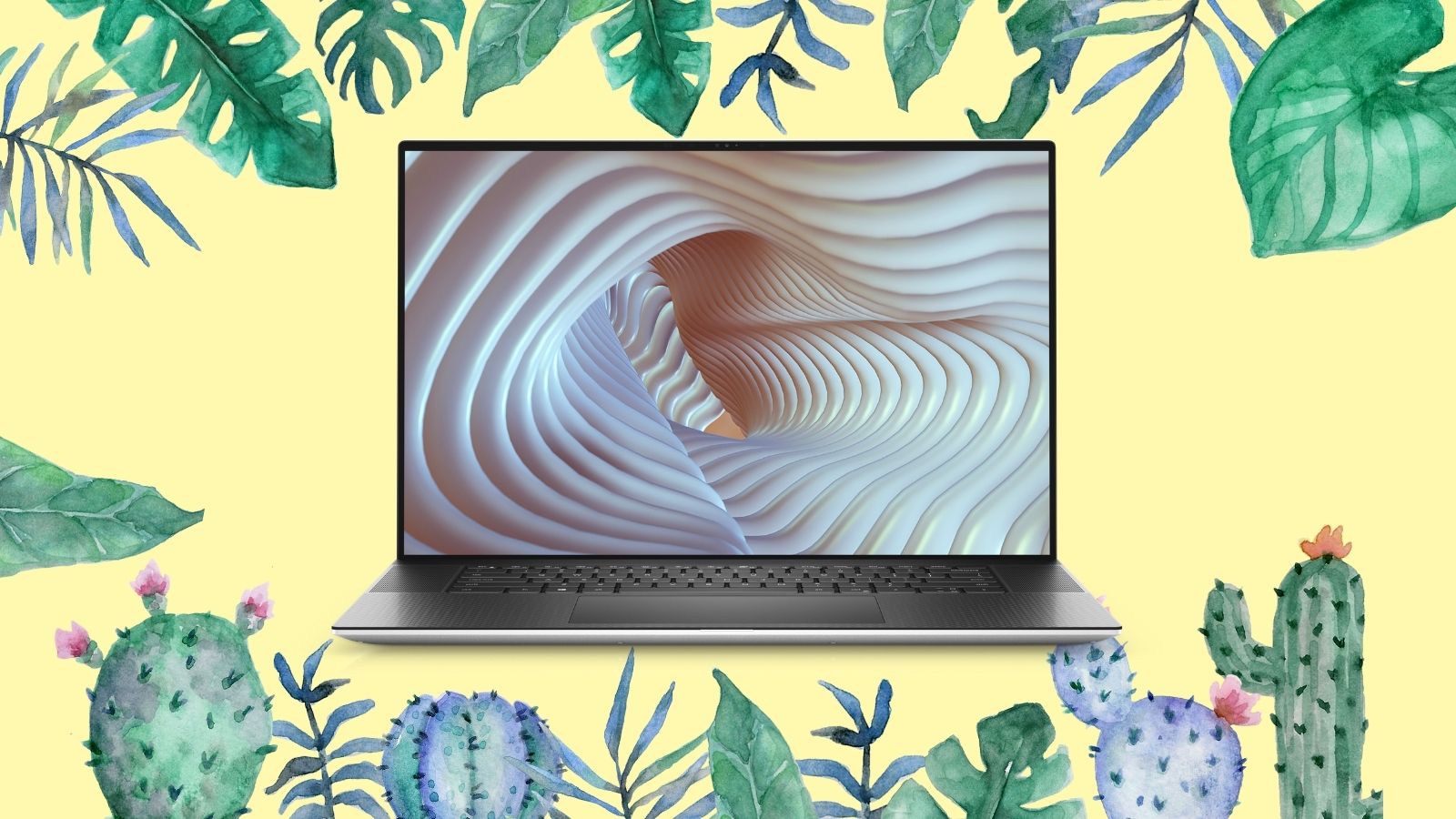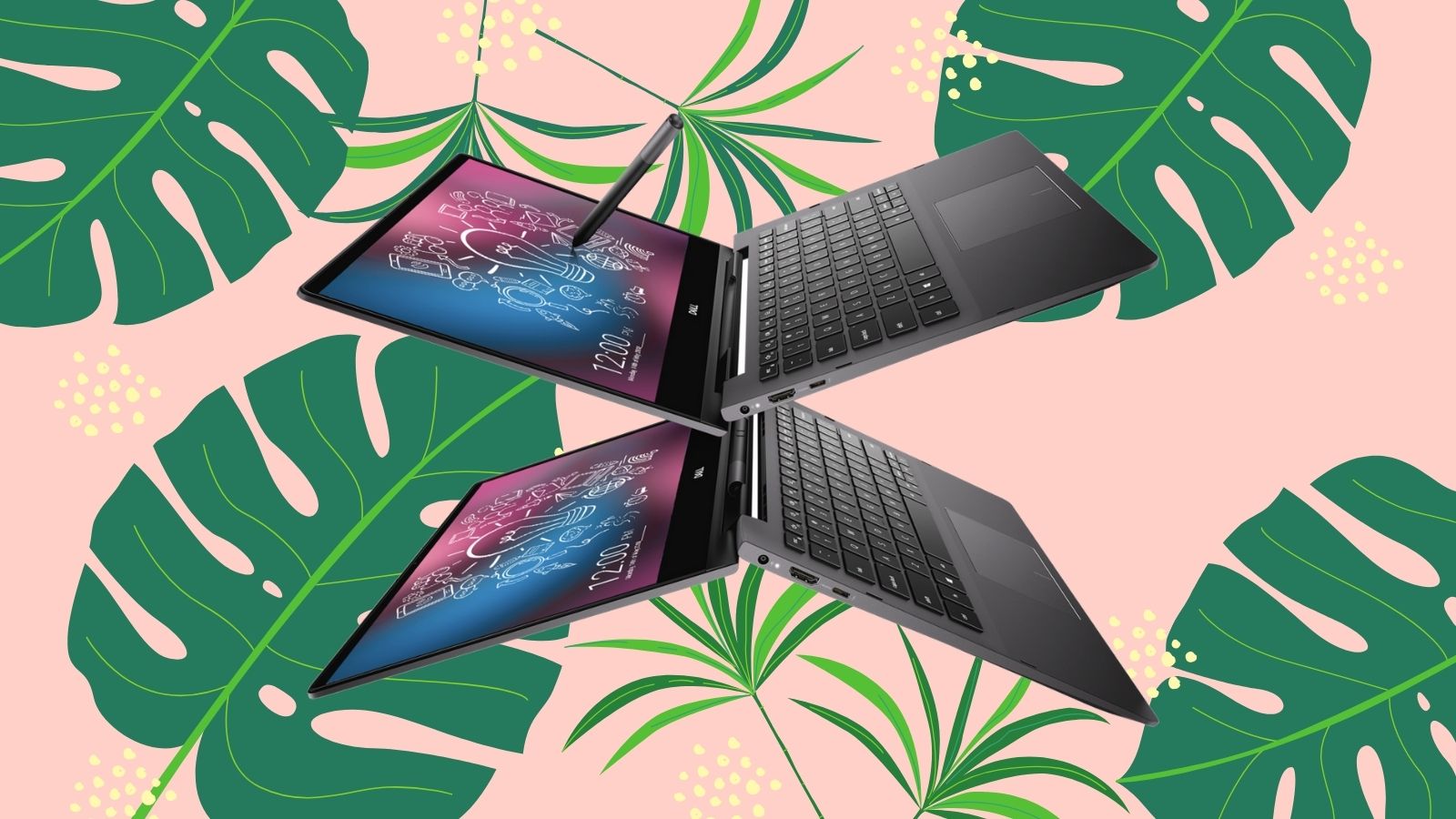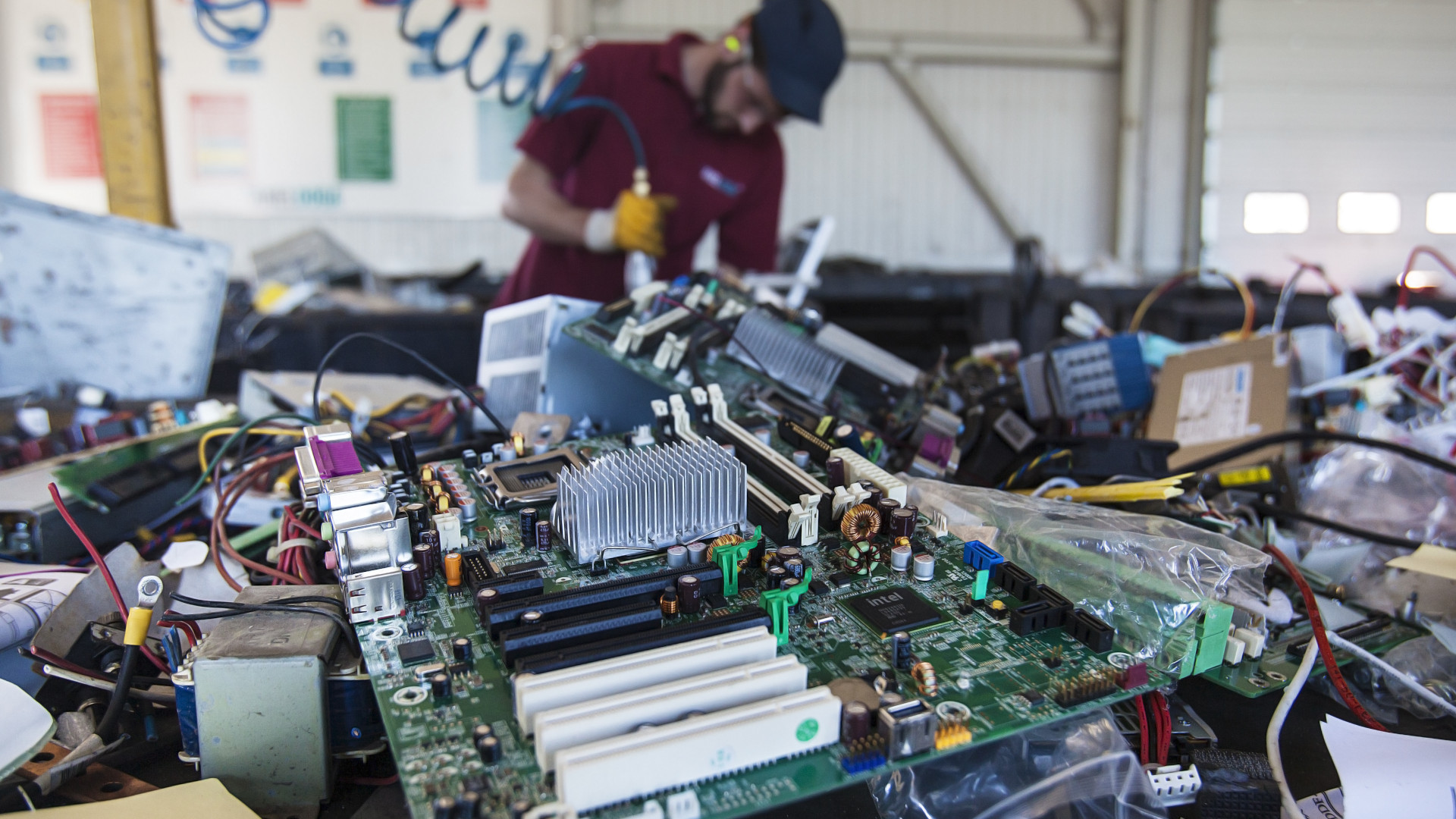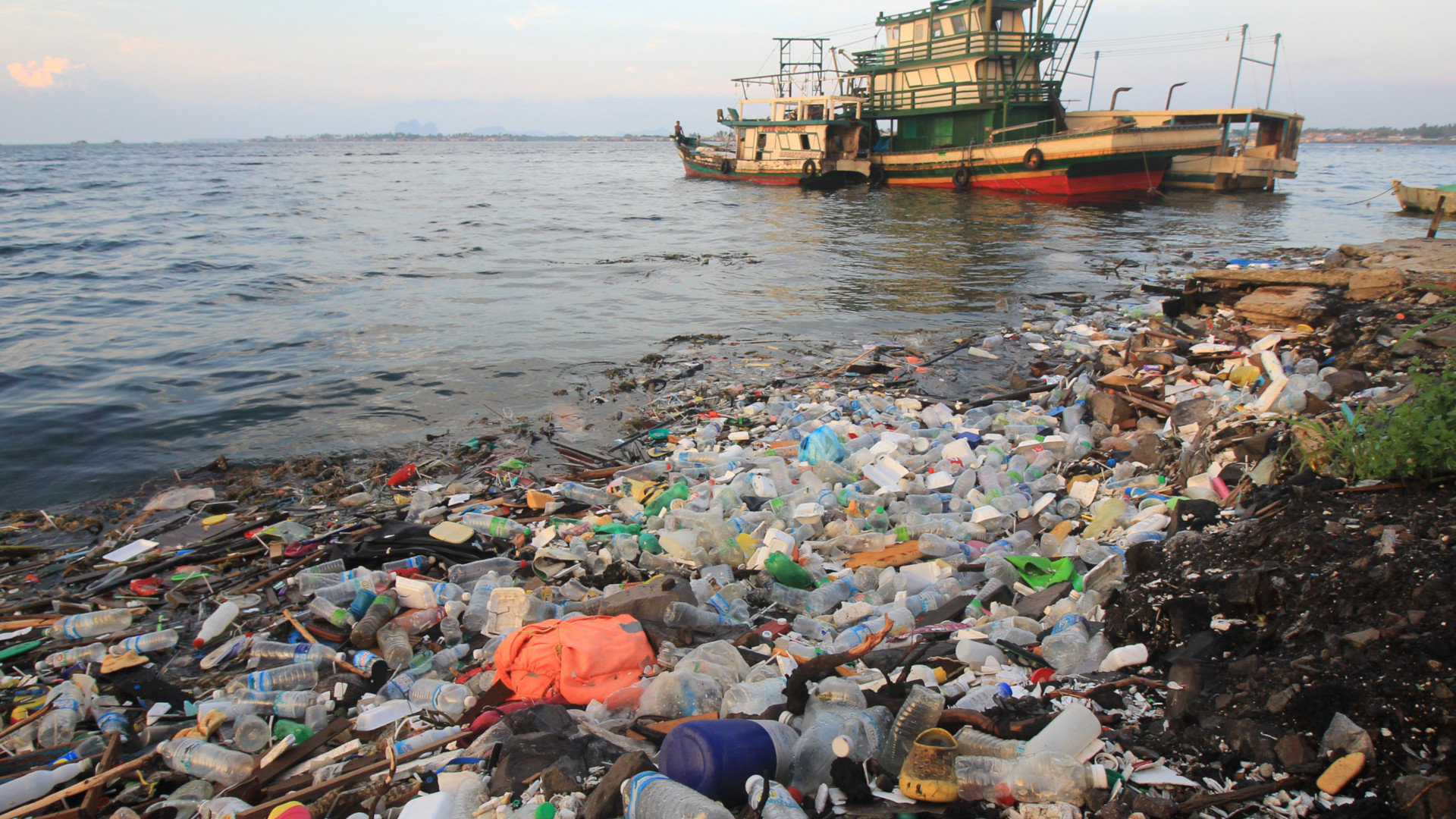Dell Enterprise has a green vision to stop our love for technology killing the planet
I've always appreciated how lucky I am to be alive during this period of history, given the huge technological advances that have occurred during my short time on this planet, but in recent years these feelings of gratitude and awe have increasingly been accompanied by a nagging sense of eco-guilt.
Like many people, my love for gadgets, both those that are currently available, and the exciting new devices that are always on the horizon, is in direct conflict with my growing awareness of the environmental impact that their production and use is having on our planet.
It’s almost impossible to be a completely ethical consumer, and the ability to do so often comes from a place of financial or geographical privilege. For those of us in this position however, making conscientious decisions around our standards for what we buy and how we use it can help offset the anxiety we often experience when making new tech purchases. Pleas for eco-responsibility from David Attenborough and other leading figures in the environmental and conservation movements are sadly unlikely to dampen our demand for the latest and greatest devices from the likes of Apple, Sony or Microsoft.
Can we do better?

It’s not all doom and gloom, however. Some of the world’s biggest tech manufacturers are taking issues of sustainability just as seriously as consumers, and I've recently found that I'm able to sleep a little better at night having spoken to Dell regarding its plans for sustainable innovation.
As one of the biggest names in the computing business, producing hundreds of thousands of laptop and desktop machines every year, along with monitors and other peripherals, Dell hopes to set an example across the industry in terms of reducing its impact on the climate and the environment a mission driven in large part by the vision of its Head of Experience Design, Ed Boyd.
As outlined in a blog post on Dell’s website, Boyd has some ambitious plans to massively reduce the electronic and other waste produced by the company over the coming years. “By 2030, for every product a customer buys, we will reuse or recycle an equivalent product, and 100% of our packaging and more than half of our product content will be made from recycled or renewable material,” Boyd tells me.
It’s no small undertaking, but it’s one that Boyd is clearly taking very seriously. I was lucky enough to chat with him about the ideas that are currently being developed within the company to help transform the currently problematic methods used to recycle our old tech.
Even the largest recycling centers typically outsource a huge amount of labor to other facilities, due to the complexity of working with the hundreds of different materials that go into our mobile and computing devices – and by the time these materials have traveled to more specialized facilities across the world to be processed, your ‘recycled’ tech may have caused more emissions and pollution than you think.
We can rebuild, we have the technology
Boyd told me that “part of our vision is centered around this idea of how do we radically rethink everything from the beginning of the supply chain, all the way through the manufacturer, the assembly and the disassembly for the full life cycle of the products”
Dell’s plans are nothing if not ambitious, and Ed’s vision includes creating what’s called a ‘looping lifecycle’ across its entire design process. Essentially, what this means is that for every component that’s used in new or refurbished products, an equivalent is fully recycled or refurbished, creating a completely sustainable give/take approach to device manufacturing. Ultimately, Dell wants to reuse or recycle an equivalent product for every device sold by 2030.
A ‘closed-loop’ system means the manufacturing process is completely self-sustaining and won’t require environmentally harmful activities like producing fresh plastic, instead reusing materials that already exist; materials are reused continually so that they don’t leave this ‘loop’ and contribute to landfill waste. ‘Closed-loop’ plastic is already being used on more than 125 different product lines, and eventually, Dell aims to reduce the number of materials used, and employ sourcing from renewable sources, to create a completely closed-loop process across its entire portfolio.
I’ll admit that I was initially cynical. Many of us who try to make ethical or environmentally friendly changes to our buying habits can find that the alternatives are just as bad, resulting in skepticism when businesses promise changes like those Dell is looking to implement. So I was pleasantly surprised to discover that all of Dell’s research will be completely open source, so that other designers and engineers can build upon and improve the ideas.

I’ll admit that I was initially cynical. Many of us who try to make ethical or environmentally friendly changes to our buying habits can find that the alternatives are just as bad, resulting in skepticism when businesses promise changes like those Dell is looking to implement. So I was pleasantly surprised to discover that all of Dell’s research will be completely open source, so that other designers and engineers can build upon and improve the ideas.
And the company isn’t just focusing on recycling either – it’s looking to develop new technology that will give our devices longer, and even multiple lives. This stands in stark contrast to the concept of ‘built-in obsolescence’ whereby products are purposefully designed to degrade over a set time period, forcing consumers to buy newly released devices.
“We used to design our products so that they looked really attractive, worked really well, were reliable,” Ed says, “but now we’re also stepping back and designing these products so that instead of taking an hour to disassemble, you can push a pin into it and pop them apart in seconds”.
This would mean that broken or outdated components can be removed as part of the aforementioned closed-loop recycling initiative, and be replaced by equally sustainable tech to prevent whole machines from ending up in landfills or poorly equipped electronics recycling facilities.

But the coolest thing for me was hearing about how technology like AI, cloud computing and 5G connectivity will be used to further this longevity plan, for example by pushing over-the-air updates to devices in order to bring them up to the latest standard. This eliminates the need to switch out physical components as they become outdated or slow, instead of creating technology that is able to adjust to ever-developing standards.
“Imagine a device that doesn’t degrade the moment you get it, but instead actually gets better over its lifecycle.” says Boyd “It can be faster and more powerful, with more features and capabilities”.
A new hope?
And, remarkable as it sounds, this technology isn’t far away. According to Ed we could see this type of self-repairing hardware hitting our shelves in the next five to 10 years. He envisions a service-like experience in which used devices can be assessed, refinished and put back into the marketplace in a better condition than the day they were made, removing the stigma attached to buying a second-hand machine, as it won’t simply be a slower and out of date ghost of its former self.
Having a laptop or computer that can be kept up to date via a combination of physical servicing and AI programming will create ‘evergreen’ products, rather than the limited-lifespan devices we typically see now. This would, in theory, remove the demand for the latest annual new model, as a five-year-old machine would be just as capable as one fresh off the production line.

I’m reserving judgment for the time being, but Dell does seemingly recognize the weight of responsibility it carries, as a company that sells millions of devices across multiple markets and regions, to manufacture and market its products in sustainable and ethical ways.
Just 100 companies were found to be responsible for 71% of global emissions back in 2017, so it’s understandable that eco-conscious folk will have their doubts about a company of this size being able to make a real difference. But having listened to Boyd it’s hard to question his commitment to bringing about meaningful change.
Dell has joined or partnered with a number of environmental initiatives in recent years, including becoming a founding member of NextWave Plastics, which is a collection of big-name brands dedicated to help eliminate ocean-bound plastics, and working with Graviky Labs on a project to turn diesel exhaust waste into ink.
I’m encouraged to learn that doing right by the planet is such a focus point for Boyd and his team. Ethical consumption is often portrayed as putting the brakes on technological advancement and ‘returning to the earth’, regressing to a simpler time before our devices existed. As idyllic as that sounds, it simply won’t happen.
A future where human development doesn’t come at the cost of sacrificing our planet seems like a much more realistic objective, and thanks to the sustainability initiatives being pursued by Dell and other tech companies it’s one that’s increasingly within reach. While I’ll continue to anxiously read my food packets and check my clothes labels to see where and how those products were produced, I can at least look forward to the day when I can purchase a new laptop, knowing with some confidence that it might be the last one I ever buy.
- Stay up to date on all the latest tech news with the TechRadar newsletter
from TechRadar - All the latest technology news https://ift.tt/2OvQ8km
No comments